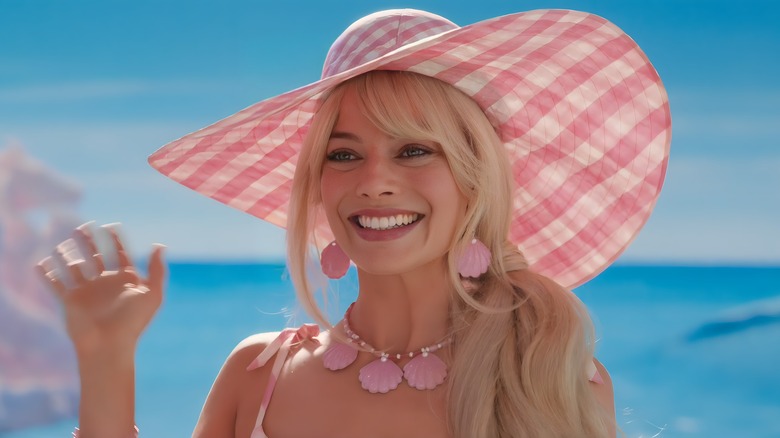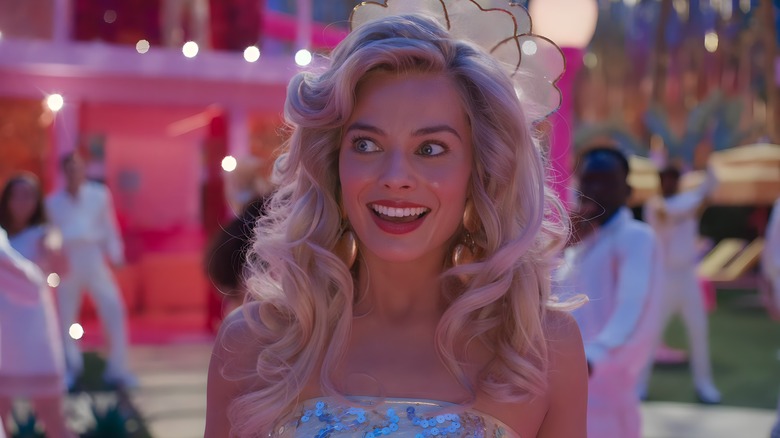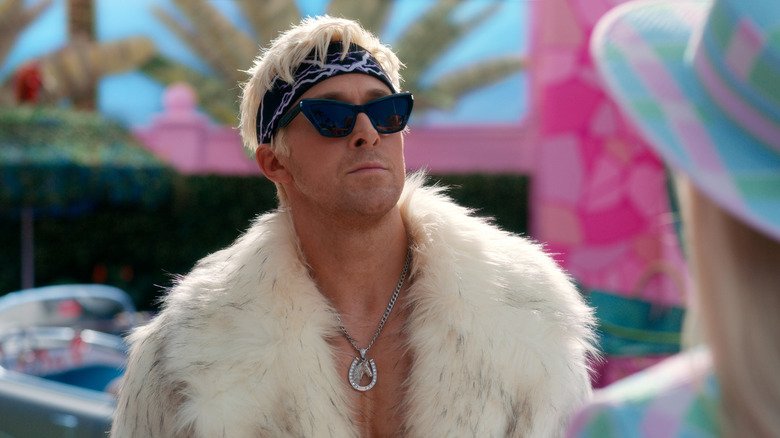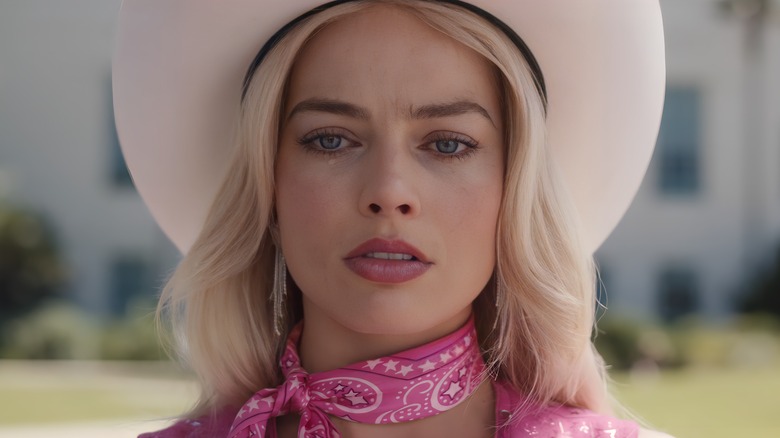John Carpenter Doesn't Understand Barbie - Here's Why And What It's Really About
John Carpenter might be one of the greatest horror and sci-fi directors in cinematic history, but he's a little thrown off by Greta Gerwig's latest film.
Carpenter recently spoke to the Los Angeles Times about his new anthology series "Suburban Screams," which he's helming at 75 years old. While he's certainly not slowing down as a filmmaker, he admitted he mostly hangs at home these days. But this conversation on film eventually turned to his confession that he couldn't make heads or tails of the "Barbie" movie, which drew massive critical acclaim, handily crossed the billion-dollar mark at the box office, and likely will end up a major Oscar contender.
So, what did Carpenter think of "Barbie?" He was baffled, apparently. "I don't go out," the director said. "I haven't been to a movie in a while, but I see them at my house. I'll see it there. I watched 'Barbie.' I can't believe I watched 'Barbie.' It's just not my generation. I had nothing to do with Barbie dolls. I didn't know who Allan was. I mean, I can sum it up. She says, 'I don't have a vagina,' and then at the end, 'I'm going to go to a gynecologist!' That's the movie to me ... There's a patriarchy business in there, but I missed that whole thing. Right over my head."
Still, he clarified that he liked one thing: "But I think she's fabulous, Margot Robbie."
John Carpenter's comments make it clear that he's not sure what Barbie was about
Okay, let's get into Carpenter's comments! First, he's aware that the bubbly-yet-sardonic "Barbie" isn't in his wheelhouse, which makes sense — considering he's known for straightforward stories revolving around survival as a premise like "Halloween" and "The Thing." However, his analysis is a mess. Carpenter not knowing who Allan (Michael Cera), a side character played for laughs, feels immaterial to the film's premise. Cera's character, who is based on an original doll known as "Ken's buddy" (cough: boyfriend), is a fun addition to the movie ... but that's where his role ends.
Then, there's the issue of Carpenter saying he can "sum" up the film by noting that, at one part, Barbie (Robbie) proudly announces she doesn't have a vagina. Later, she goes to see her gynecologist. When Barbie makes that comment, she's telling the truth: She's still a doll. In the movie's closing stinger, she's visiting a gynecologist because she's become a real woman, ready for the discomfort and contradictions that come with it. That's the gist, in case that clears up lingering questions for Carpenter or anyone else unsure of those moments' underlining meaning.
A lot of men found themselves baffled by the Barbie movie
Carpenter isn't alone — several male viewers seemed to misunderstand "Barbie." (But it's possible he won't like the company he's keeping, though.) Right-wing pundits mercilessly attacked the movie after its debut: Ben Shapiro made a video that ran for over 40 minutes ranting about the "woke" movie and called it one of the worst films he'd ever seen. United States Senator Ted Cruz slammed the movie for depicting a map of a contested area in the South China Sea, even though the map in question is crudely drawn nonsense where England is adjacent to Asia (and topped with a crown). Matt Gaetz's wife Ginger posted on X (formerly known as Twitter) that the film "neglects to address any notion of faith or family, and tries to normalize the idea that men and women can't collaborate positively." She also said that Ken, famous for not having genitalia, had "low testosterone." Matt Walsh didn't see the movie but hated it anyway — are we surprised?
Perhaps the most baffling reaction came from late-night host Bill Maher, who seems to enjoy taking a contrarian stance on anything and everything. Maher's point, which he tried to make in an extra-long post on X, boiled down to the fact that Mattel does have women on its board of directors. He became angry that the film painted the real world as inherently sexist.
So what's the real message of the Barbie movie — and what are these guys missing?
At least Carpenter's misreading of "Barbie" doesn't seem to be in bad faith — unlike some other takes — but it does betray a fundamental misunderstanding of Greta Gerwig's film. The director, who wrote the film alongside her partner Noah Baumbach, was handed the keys to Mattel's kingdom. Aided by her star (and the movie's executive producer) Margot Robbie, Gerwig made a searing, sly, and subversive movie based on a toy.
The film really comes down to America Ferrera's show-stopping monologue at the film's end. As she says, being a woman is a constant, irritating, painful, and ridiculous contradiction. You have to be everything but also shrink yourself into nothing in so many ways. When Barbie starts to fully see the push and pull of what it means to be a human woman, she's appalled and then intrigued. She realizes she can't live her perfect life as a doll anymore. Gerwig and Baumbach's point is that, ultimately, nobody can achieve perfection. If you think that you have, it's a hollow achievement. Barbie only grows throughout the movie, completing her journey by, yes, visiting a gynecologist (a frankly perfect encapsulation of the irritations of womanhood).
Sure, it's okay that John Carpenter didn't quite get "Barbie." It's not for him. But a lot of people felt seen and heard by "Barbie," though — and that's what's important.



